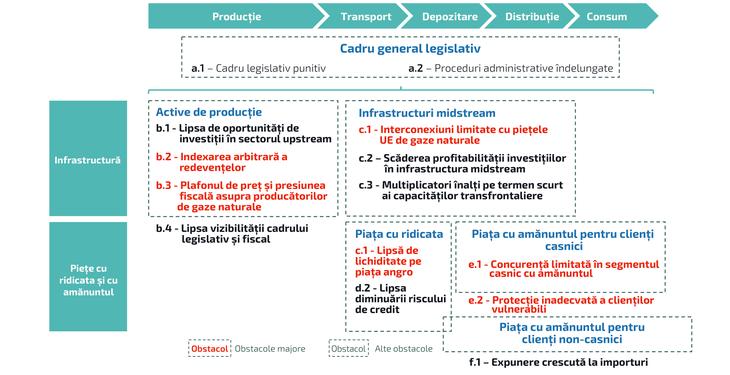In the aftermath of the new regulations’ (GEO 114/2018 and GEO 19/ 2019) effects, the Romanian Oil and Gas Employers’ Federation (FPPG) has changed the parameters of a previously ordered study to include the arbitrary measures taken in December and concluded, after more than six months of interviewing the leaders of the oil & gas industry, that Romania needs to stay away from short term vision and measures and further liberalize the market.
The Emerson study concludes that Romania lacks the attractivity for the foreign investors and needs to further ensure liquidity for the market.
“Romania lacks interconnection, lacks options as far as of diversification of supply, and at the same time, interconnection can provide a better pricing. The market has a very poor liquidity, sometimes the regulatory framework itself is source of lack of liquidity. The currently applicable market obligations (CMO) are not adapted to improve market liquidity, as they do not provide for a foreseeable future”, says the study, presented by Emerson’s partner, Sebastien Zimmer.
At the same time, the market lacks investment opportunities, as no new tender for exploitation of resources has been kept for the past 10 years (since 2009).
Therefore, the study recommends adaptation of CMOs, as every market player can anticipate the volume of gas sold. Romanian framework should get rid of severely punitive measures. Also, the price cap should be removed, as there is no liberalization when you have an overregulation.
As the current market conditions imposed by GEO 114 threaten the security of supply, opening the door to more Russian gas, new measures should be taken in the market.
Any measures should take at least 18 months to implement, so at least taking them earlier, should ensure a quicker materialization.
“Main objectives should include defining the vulnerable consumers. Now only 4.6% of vulnerable households are really covered by the price cap, and if the new rules should be implemented, 20% of the population should be covered. Defining the new wholesale market conditions should be paramount and ensuring affordable and competitive gas prices is in advantage of final users”, says the study.

